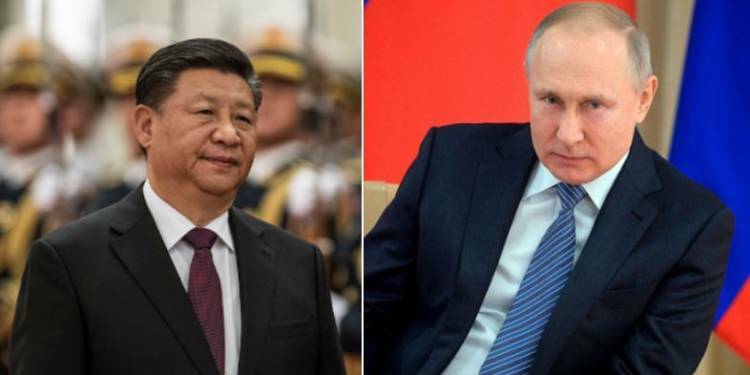The situation in Central Asia can flare up any moment as soon as the US leaves Afghanistan and realising this, Russia has got on a deal-making spree with the Central Asian powers, which have traditionally been under the influence of Russia itself. Russia has performed large-scale joint military exercises, signed new military cooperation agreements, and taken steps to integrate its air defence system with its Central Asian neighbours over the last month. These moves, according to Moscow, are intended to assist Central Asian states in combating terrorist threats emerging from Afghanistan.
Russian President Vladimir Putin is using the current disruptions in the Middle East to make sure he can re-establish the strong position of Moscow that it has enjoyed before the consistent encroachment by Beijing. “Russia is primarily interested in strengthening its military and political clout in Central Asia, the soft underbelly of the Russian Federation,” said Andrei Serenko, head of the Center for the Study of Modern Afghanistan. “The situation in Afghanistan is viewed first and foremost as a threat capable of jeopardizing Russia’s influence in the region,” he added.
Russia still has a substantial military presence in Central Asia over 30 years after the Soviet Union fell apart. Moscow is the region’s main arms provider, with forces stationed in Kazakhstan, Kyrgyzstan, and Tajikistan. These three Central Asian republics are also members of the Collective Security Treaty Organization (CSTO), a military alliance led by Moscow that includes other post-Soviet governments.
A bilateral relation, which was keeping a façade of friendship to keep common enemies at bay, seems to have been going through a series of new permutations and combinations. The Russians under Vladimir Putin are trying their hardest to keep the Chinese attempt to weaken them geopolitically at a minimum. The fact that Russia has reclaimed Central Asia from China via its vaccine diplomacy seems to be a good sign. However, Beijing is steadily keeping its efforts up to make Russia a second fiddle in what it calls a strategic partnership. China has also gotten involved in the internal political tussle of the Russian Republic and TikTok is providing a platform to foment the pro-Navalny protests across Russia.
The Chinese Communist Party simultaneously has continued its efforts to replace Russia as the major influential nation in the region. In late April, Russia held a large-scale exercise with Tajikistan involving over 50,000 military personnel and 700 units of military hardware, ranging from fighter jets and tanks to rocket launchers and artillery. The drills took place near Tajikistan’s southern border with Afghanistan and centred on a border breach scenario.
Russian Defense Minister Sergei Shoigu came to Tajikistan a few days after the drill ended to sign an agreement to develop a combined air defence system. Shoigu also made a stop in Uzbekistan, where he announced the first-ever four-year “strategic collaboration” agreement between the Russian and Uzbek military ministries. The Kyrgyz Defense Ministry stated on Monday that the country would hold a joint military exercise under the auspices of the CSTO in the coming months, ahead of Kyrgyz President Sadyr Japarov’s visit to Russia on Monday. 4,000 troops from Russia, Kazakhstan, Kyrgyzstan, and Tajikistan are anticipated to participate in the drill.
According to Alexey Leonkov, a military expert for the respected Russian defence newspaper Arsenal of the Fatherland, the greatest threat in Afghanistan is IS, not the Taliban. Despite Moscow’s reservations about the Taliban’s terrorist background, he indicated that the Islamist group may alter its stance and assist in the formation of a more stable administration. “If the situation in the region deteriorates and Afghanistan adopts the black flag of the Islamic State, then that will become a problem for all countries bordering it and it will be necessary to wage full-scale military actions,” Leonkov said.
While China is busy with its misadventures in East Asia and trying to intimidate Taiwan, Russia has made its move under the leadership of Putin to make sure the Central Asian powers remain in Russia’s grasp.







